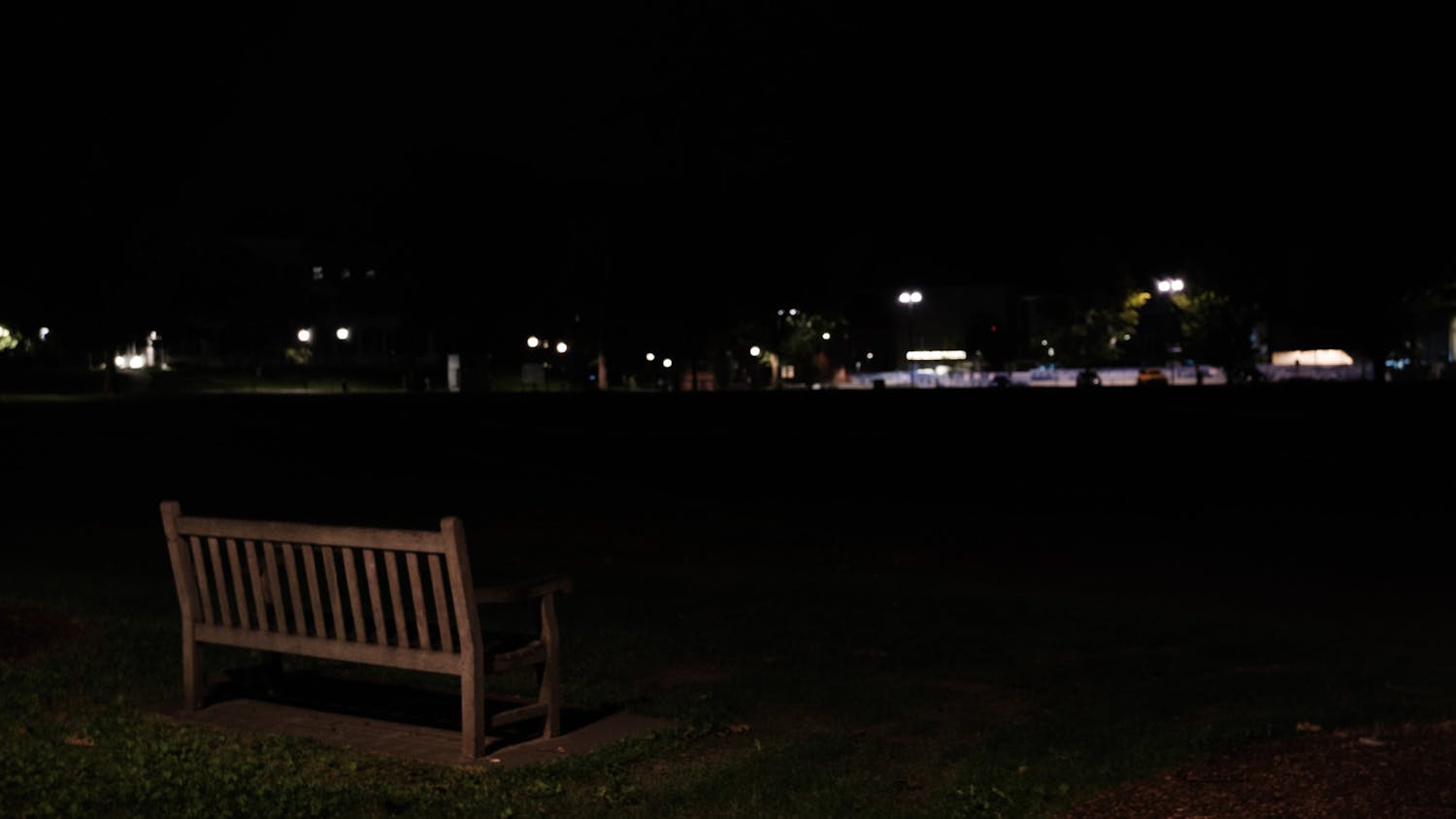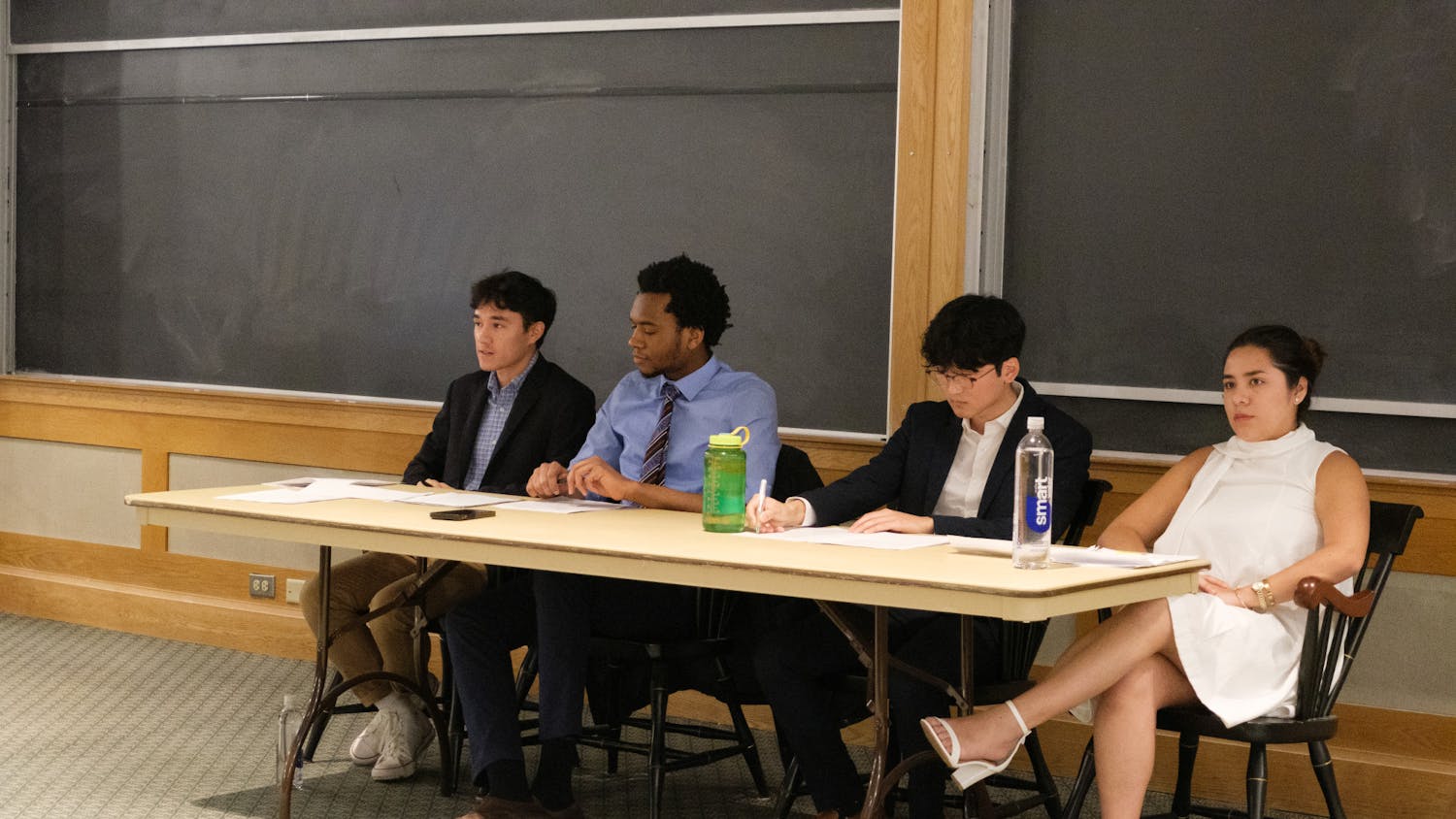Long the domain of student activists, economists from around the country have now entered the fight over collegiate sponsorship of sweatshops abroad, conglomerating their influence in a letter addressed to university presidents.
Criticizing what they say is universities' lack of consideration in their decisions to join independent monitoring organizations, the 200 signatories call for a more deliberative process and question the effectiveness of students' efforts.
And while it is unclear whether the letter will influence campus policies, it does underscore the heightened differences between the newly established student anti-sweatshop movement and economists who study international trade. At the same time, it articulates a frustration on the part of economists who feel they were excluded from university decisions.
Though the phenomenon has skipped Dartmouth entirely, a wave of student sit-ins has recently taken hold on campuses across the country, marking perhaps the first stream of campus activism since the anti-apartheid protests of the 1980s.
Most of the recent demonstrations have been aimed at convincing universities to join the infant Worker Rights Consortium, a new group that monitors the factories where collegiate apparel is produced, champions wage increases and pushes for the right of workers to organize.
Above all, the protests have raised the difficult question of how universities can ensure that their logo-bearing products are produced under humane conditions. And while WRC advocates claim that theirs is the effective way, the economists who signed the letter counter that the independent monitoring organizations have the potential to do more harm than good.
"We often encounter news reports of sit-ins by groups of students in the offices of university/college administrators, after which decisions are made without seeking the views of scholars in the social sciences, law, or humanities who have long researched the issue involved," says the letter, written by members of the Academic Consortium of International Trade, a group dedicated to trade policy.
The letter, which will be sent to Dartmouth among several hundred other colleges and universities, continues that wage raises in developing countries, far from helping the livelihood of factory workers, would likely precipitate unemployment and exacerbate wealth disparities.
"The net result would be shifts in employment that will worsen the collective welfare of the very workers in poor countries who are supposed to be helped," the authors write.
But the evidence behind the economists' argument is not entirely clear. Because most of the ideas articulated both in their letter and by groups such as the WRC are new and have little empirical basis, a lot of such claims border on the theoretical.
And in the United States, where living wage campaigns have been fought in communities across the country, living wages have, in fact, helped to improve the lives of low-skill workers.
Charlie Eaton, a junior at New York University and a spokesperson for the WRC, said the signatories are rehashing old theories that have been disproved throughout recent history.
"The same thing was said by economists in the 1930s when workers were trying to advocate for more than the prevailing minimum wage, because that minimum wage was simply not enough. And jobs weren't lost because of competition," he said.
To join the WRC, schools sign a code of conduct that includes stipulations on the conditions under which collegiate apparel is manufactured. Though the WRC has yet to start its verification process, it plans to use local human rights and non-governmental organizations to assure corporate compliance. There are currently 60 members of the WRC.
"I don't think the letter effectively describes what the WRC does," Eaton continued. "We want to make sure that we aren't jeopardizing the lives of any workers, we are there to empower them."
But also interesting about the letter is that it similarly critiques the Fair Labor Association, the precursor of the WRC and the subject of that organization's protests. A White House Initiative, the FLA was founded by university administrations and collegiate licensing corporations and is widely seen as the more moderate of the two independent monitoring organizations, prompting students to advocate for their universities' withdrawal from it.
Though there has been no student objection to Dartmouth's membership in the FLA, at least two members of the Dartmouth economics department -- Doug Irwin and Matthew Slaughter -- signed the Academic Consortium's letter.
"It'll probably be just more junk mail" for President James Wright, Irwin said.
Nonetheless, Irwin said he signed the letter because "[the monitoring organizations] think that somehow imposing restrictions will give the workers an economic opportunity that they didn't have, which isn't very constructive," Irwin explained.
He added that he has seen "more [sweatshop] controversies on other campuses, more questions."



